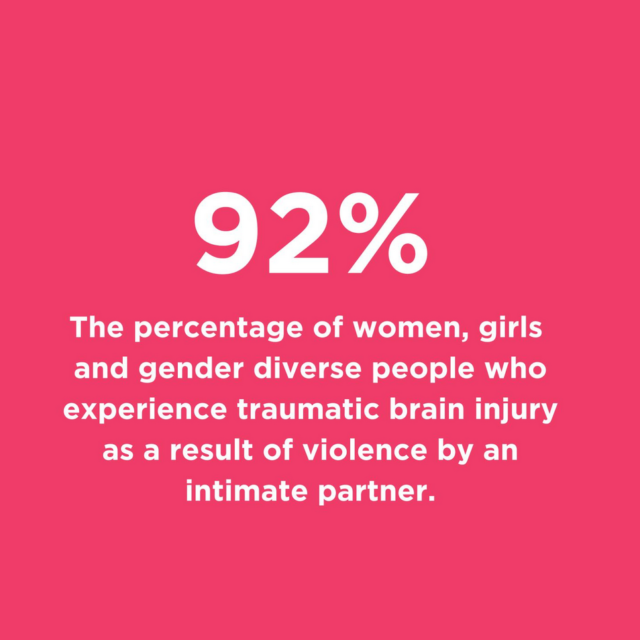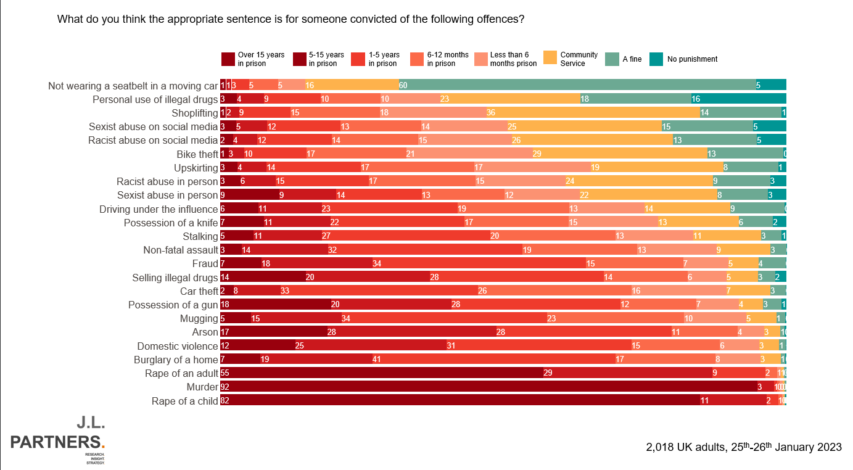The article was written in a for-and-against fashion, giving both sides a fair opportunity to put their case. And the case for the practice was that it allowed people to express their anger, whose object was not specified. In other words it was their anger which made them and their actions morally right; presumably, therefore, the angrier they, or anyone else, felt, the more rightful they became. This does not seem to me to be a recipe for psychic, let alone, social, harmony, but rather for a permanent Balkan war of the soul.
In line with the notion that people need “a stake in society” in order to refrain from breaking shop windows and taking what they think they have been wrongfully denied (interestingly, the bookshop was the only shop in a very badly looted commercial street that went completely unscathed during the riots), a man called Earl Jenkins — “who was one of up to 60 youth workers who went on to the streets of Toxteth [a poor area of Liverpool] during the disturbances to persuade youngsters not to get involved” — was reported in the Guardian to have said, “If you’ve got nothing to lose, you’ll do what you can to survive, won’t you?”
There was no comment in the newspaper on the deep contradiction in the attitude of Earl Jenkins (let us leave aside the question of how many “youth workers” in Toxteth are needed to prevent a riot there). For if it is true that the riots were a survival mechanism, why was Earl Jenkins trying to persuade young people not to join in? Did he not want them to survive? Suffice it to say that the objects looted during the riots were not such as people on the verge of famine, or who fear that famine is around the corner, might be expected to loot. They were, rather, the things that spoilt children might be expected to want for their birthday.
The term “If you’ve got nothing to lose” in this context is ambiguous. It might mean such penury, such drastic poverty, that you possessed nothing that could have been removed from you. But it clearly cannot mean this, since all the rioters were at liberty, and were clothed, fed, housed, educated (if unsuccessfully), provided with medical care, and given at least a small income, much of which could, in theory at any rate, be removed from them. They could be made homeless; their central heating could be turned off; they could go hungry and literally penniless, made to wear rags; their telephones could be taken from them; they could be deprived of their liberty and even enslaved.
But none of this was going to happen to them and they knew it perfectly well; so in this sense it was indeed true that they had nothing to lose. One of the commissioners appointed to enquire into the riots actually put it succinctly:
When people don’t feel they have a reason to stay out of trouble, the consequences for communities can be devastating …
But the reason they “don’t feel a reason to stay out of trouble” is not because they have nothing to lose in the sense of being so deeply impoverished that they have nothing removable from them, it is because they have nothing to lose because they know that whatever they have will never be removed from them, under any circumstances whatever.
Theodore Dalrymple, “It’s a riot”, New English Review, 2012-04.
July 18, 2023
QotD: “Nothing to lose”
June 25, 2023
British schoolchildren mock their oh-so-woke teachers
In Christopher Gage’s weekly round-up, I discovered that I shared a trait with Ted Kaczynski (“austere anarchist scholar” as US mainstream media might have described him). Not just any trait, but the one that ended up putting him in prison after nearly twenty years of sending bombs through the mail:
… Ted insisted on the proper use of the idiom, “You can’t eat your cake and have it, too”. Ted rejected the common and logically fraught version: “You can’t have your cake and eat it, too”. Indeed, you can. You must have your cake if you are to eat your cake. You cannot have your cake once you’ve eaten your cake.
That turn of phrase helped F.B.I agents snare Ted. His sister-in-law read his essay, recognised the writing style, and the peculiar diction, and then grassed him up to the rozzers.
For the record, this may be the only point of agreement I have with that noted austere scholar, although I’ve never read any of his writings to find out.
Another amusing incident involved children taking the Mickey out of ultra-progressive teachers in British schools:
Last week, schoolchildren in Sussex dropped themselves into the soup after suggesting that their fellow classmate is not actually a cat.
Two thirteen-year-old girls at Rye College were told they “should go to a different school” if they didn’t believe that a girl could identify as a cat.
During a “life education” class, the pair said there was “no such thing as agender” and: “If you have a vagina, you’re a girl, and if you have a penis, you’re a boy — that’s it.”
When they queried how someone could identify as a cat, the pair were blasted for questioning their classmate’s identity.
An investigation found children at schools across the land now identify as dinosaurs and horses. Another often dons a cape and demands to be acknowledged as a moon. Another identifies as Bambi.
After the hysteria simmered, it became obvious what was going on here. And it too became obvious that this is a good thing.
Reader, these children are taking the Mickey.
When confronted with obvious nonsense held by their preachy, supposedly superior teachers, these kids cannot resist mocking them to a nub.
After all, if one can identify as whatever one wants then that includes anything one wants. For teenagers primed with mischief, this is just too good a brew not to sup on a daily basis.
And it is a promising sign. Ridicule, the sharp-elbowed sister of truth, is essential to all progress. Clearly, these kids are unafraid to think for themselves and are determined to see that which is beyond their own nose.
Perhaps this is the beginning of the end of what almost everybody knows to be patent nonsense. As history assures us, once something becomes a laughingstock it soon dies of ridicule.
As James Thurber put it, that which cannot withstand laughter is not a good thing.
June 20, 2023
“Mendicino is a dead minister walking, and we suspect he knows it”
Belated (from me, not from them) section from this weekend’s update from the editors at The Line:
Though you may find this hard to believe, based on what’s above, we were paying attention to some other things this week. The Ottawa vortex of ridiculousness continued at its usual clip. The government continues to try and find a defensible position on Paul Bernardo’s prison transfer to a medium-security prison. Alas for Mr. Trudeau, he’s been hit by a double-whammy of bad luck. Bernardo is an emotional trigger point with probably no rival across Canada. And the PM’s point man on this file is the hapless (!) Marco Mendicino, minister of Public Safety.
Let’s be clear: your Line editors are far too Vulcan-like to possess strong feelings about the transfer of Bernardo. We are of the right age to have grown up during the era of the Bernardo rapes, murders and eventual trial. He was the boogeyman of our youth. That being said, the important thing is that he dies miserable and alone behind bars. We aren’t particularly invested in which particular prison this happens. If there was a sensible reason for him to be moved to the Quebec facility, hey, whatever. He can rot in any suitable prison as far as we’re concerned.
The issue here, and it’s ridiculous that we have to spell this out, isn’t the transfer itself. Nor are we calling upon Trudeau or the federal government to become intimately involved in decision-making for prisoners, even high-profile ones. The only thing that turned this into a huge story was the latest peek it gave us into the Trudeau government. We have been confronted with — surprise! — more incompetence and dysfunction.
Mendicino’s staff had been repeatedly told about the pending transfer; no one told the boss. The PMO had been told, too. No one told that boss, either. Why tell the boss? So that they don’t get caught flatfooted by a scandal. This is basic issues management and internal communications, and we’re being shown, yet again, that the government is terrible at this. And, absurdly, Mendicino apparently has some of the best and brightest providing the adult supervision he so clearly needs: veteran political staffers were sent to his office after he beclowned himself during the gun-control fiasco a few months ago.
And this is the problem. We don’t care which cell holds Bernardo as he slides closer to hell. We do care about yet another data point in a pattern that has emerged with this government: they aren’t on top of their files, their offices aren’t well run, ministers aren’t properly briefed, and there seems to be zero accountability anywhere in this process. It was left to the Ottawa Parliamentary Press Gallery to hunt down Mendicino like ravenous cheetahs on a wayward gazelle after Mendicino had promised to brief them, and then no-showed. He also promised to brief them again later on Thursday, and failed to show up that time, too.
We know, we know. It’s hard to believe he’d lie. Marco Mendicino? An incompetent bullshitter? Say it ain’t so.
Mendicino is a dead minister walking, and we suspect he knows it. The government is obviously hell bent on getting to the summer break without sacking the minister, because to sack him, despite his manifest and repeated failings, would be to admit said failings, and this government will never do that. If they can get to the break, they can shuffle him off to the sweet oblivion of an obscure ministry, or even the back benches later on this summer. This is just the latest example of what Line editor Gerson has observed about these guys: tactically smart, but strategically dumb.
And, ahem, call us hopelessly naïve, but maybe the politics isn’t the point here? Canadians ought to have someone in the job of Public Safety minister — kind of an important role, you’ll agree — who is competent and well-supported by excellent staff. Instead we get this shitshow and frantic politicking to avoid handing the opposition a one-day media-cycle victory. It’s a bad look on the government. But it’s nothing we didn’t already know, we guess. They aren’t here to serve Canadians. They’re here to save themselves.
June 5, 2023
Claim: 92% of Canadian women will suffer traumatic brain injury from an intimate partner
Did that headline grab your attention? Certainly the graphic from which it was drawn grabbed my attention. But, as Janice Fiamengo explains, it’s a vast exaggeration in pursuit of a political goal:
Linden called on men and boys to educate themselves on violence and to call out one another for perpetrating or dismissing abusive behavior of any kind.
It’s not hard to understand why National Hockey League personality Trevor Linden, former captain of the Vancouver Canucks, has lent his star power to a YWCA campaign about women’s injuries from domestic violence. Hockey players have long been targets of feminist accusation for their association with a sport that allegedly promotes misogyny, racism, and violence against women. Even a beloved icon of the sport must continually strive to prove how much he despises his fellow men.
In this case, the campaign of vilification targets the purported frequency with which female victims of intimate partner violence (IPV) experience traumatic brain injury, and demands “increased support for diagnosis and treatment”. To do so, the campaign asserts some of the most dramatic numbers I’ve ever seen.
No stranger to concussions, Linden is said in a CBC report to have been “stunned” to learn that female victims are injured at a much higher rate than professional hockey players. “For every concussion incurred by an NHL player,” the report states, “approximately 7,000 women and girls in Canada are concussed because of intimate partner and domestic violence, according to a new estimate from YWCA Metro Vancouver and researchers at the University of British Columbia.”
Linden’s shock is understandable. We’ve all seen the hits meted out to professional hockey players. The thought of thousands upon thousands of Canadian women every year being treated in like manner — and suffering the consequences in traumatic brain injury (TBI) — is disturbing even to those of us who have learned to be skeptical of feminist research and inflammatory reports by Canada’s state-funded news agency.
The key paragraph in the story that justifies the staggering numbers tells us that
Approximately four in 10 women and girls in Canada will face violence from a current or former partner, according to a 2021 report by Statistics Canada, or about 290,000 every year. As many as 92 per cent of them will suffer a traumatic brain injury due to blows to their head or strangulation.
That sounds as if more than 3 in 10 women and girls in Canada (92% of 4 in 10) will at some point in their lives suffer brain injury from battering.
The statement might just qualify as the most outstanding exaggeration of violence against women ever made by a feminist organization. The good news for women and girls in Canada — and the bad news for the ever-declining credibility of feminist advocates and reporters — is that the numbers being promoted are flat-out false. They’re false even if we take note of the operative word “approximately” in the above statement. They’re false even if we accept the extraordinarily elastic definition of violence employed by the feminists who work for Statistics Canada. And they’re false even if we accept that a small study of black female victims of extreme violence can be generalized to all girls and women in Canada.
The numbers are false, ultimately, because the literature review from which the 92% number was extracted does not actually claim that 92 per cent of all IPV victims experience brain injury. A fundamental misreading and misrepresentation of data is at the heart of the campaign’s extraordinary claim.
Let’s trace, as much as possible, how the numbers have been manipulated and fudged. At the center of the hoopla is a report from Statistics Canada (“Intimate partner violence in Canada, 2018: An overview”) based on a large survey conducted by online questionnaire and telephone interview. This government-funded survey sought to measure the experience and frequency of intimate-partner violence as reported by victims — both men and women — over the previous year and over the lifetime of each victim. The sample size was large (43,296) but the response rate was low, at 43.1% overall in the Canadian provinces. (It is worth noting that response rates lower than 60% are considered by some researchers to produce unreliable and invalid results.)
May 30, 2023
Ban all the words!
Chris Bray reflects on the historical context of literature bans:
Before the Civil War, Southern states banned abolitionist literature. That ban meant that postmasters (illegally!) searched the mail, seized anti-slavery tracts, and burned them. And it meant that people caught with abolitionist pamphlets faced the likelihood of arrest. The District of Columbia considered a ban, then didn’t pass the thing, but Reuben Crandall was still arrested and tried for seditious libel in 1833 when he was caught with abolitionist literature. He was acquitted, then died of illness from a brutal pre-trial detention. Seizure, destruction, arrest: abolitionist literature was banned.
The Soviet writer Yevgeny Zamyatin wrote a 1924 novel, We, depicting a world in which an all-powerful government minutely controlled every aspect of life for an enervated population, finding as an endpoint for their ideological project a surgery that destroyed the centers of the brain that allowed ordinary people to have will and imagination. The Soviet government banned Zamyatin’s work: They seized and destroyed all known copies, told editors and publishers the author was no longer to allowed to publish, and sent Zamyatin into exile, where he died without ever seeing his own country again. Seizure, destruction, exile: Yevgeny Zamyatin’s work was banned.
During World War I, the federal government banned literature that discouraged military service, including tracts that criticized conscription. Subsequently, “socialists Charles Schenck and Elizabeth Baer distributed leaflets declaring that the draft violated the Thirteenth Amendment prohibition against involuntary servitude”. They were arrested, convicted, and imprisoned. The Supreme Court upheld the conviction. Anti-conscription literature was banned: It was seized and destroyed, and people caught distributing it were sent to prison.
In 2023, the tedious midwit poet Amanda Gorman posted on Twitter that she was “gutted” — the standard emotion for tedious midwits — to discover that one of her poems had been “banned” by a school in Florida. The news media raced to proclaim that Florida schools are banning books, the leading edge of the Ron DeSantis fascist wave.
As others have already said, Gorman’s boring poem was moved from an elementary school library shelf to a middle school library shelf, without leaving the library
May 16, 2023
Hope for sensible reform to US Civil Asset Forfeiture?
J.D. Tuccille on the latest bipartisan attempt to at least somewhat rein in the Civil Asset Forfeiture abuse allowed under current rules:
Years after “civil asset forfeiture” became synonymous in many minds with legalized theft, the practice of seizing money and property merely suspected of a connection to a crime remains a boil on the ass of American jurisprudence. Now, in a rare demonstration of cooperation across political divides, Democratic and Republican lawmakers have joined together to introduce legislation to reform the practice of civil forfeiture at the federal level. They are supported by a coalition of organizations that put aside ideological differences in an attempt to curb the dangerous practice. As encouraging as the bill’s prospects appear, that this is not the first attempt to pass this legislation underlines the challenge of correcting government abuses.
“Today, U.S. Representatives Tim Walberg (R-MI) and Jamie Raskin (D-MD) reintroduced the Fifth Amendment Integrity Restoration Act (FAIR Act), a comprehensive reform to our nation’s civil asset forfeiture laws,” the two lawmakers announced in March. “The FAIR Act raises the level of proof necessary for the federal government to seize property, reforms the IRS structuring statute to protect innocent small business owners, and increases transparency and congressional oversight.”
The FAIR Act sets a higher bar for seizing private property, but still allows for civil forfeiture in the absence of a criminal conviction. The legislation requires:
“If the Government’s theory of forfeiture is that the property was used to commit or facilitate the commission of a criminal offense, or was involved in the commission of a criminal offense, the Government shall establish, by clear and convincing evidence, that … there was a substantial connection between the property and the offense; and the owner of any interest in the seized property — (i) used the property with intent to facilitate the offense; or knowingly consented or was willfully blind to the use of the property by another in connection with the offense.”
The bill requires that seizures be conducted in court rather than through administrative processes and also guarantees legal representation for federal forfeiture targets.
The FAIR Act isn’t a perfect bill. Many reformers will object that forfeiture should require the criminal conviction of the person whose money and property is being taken. Draining somebody’s bank account and nabbing their car keys may not be as dramatic as throwing them in a prison cell, but it’s a harsh punishment all the same and should require full due process. Still, some improvement is better than none for a practice that has largely served as an exercise in legalized highway robbery.
May 14, 2023
Garbage data informs the Canadian government’s approach to gun control issues
In The Line, Tim Thurley points out the (totally expected) bias of the data being considered by the federal government:

A selection of weapons (mostly restricted or prohibited in the hands of most Canadians) displayed by Toronto police after confiscation.
Screencap from a CTV News report in 2018.
The Mass Casualty Commission’s firearm recommendations were, rightly, overlooked in the initial phase after the report’s release. They have become relevant these past weeks as gun control groups, the NDP, the Bloc, and the Liberals used them to advocate for sweeping changes to Bill C-21, the government’s controversial gun-control proposals. The Liberals have thus far declined to adopt the MCC’s recommendations, at least in whole, and that’s encouraging. Our lawmakers should be careful. The Mass Casualty Commission’s concluding recommendations on guns and homicide share a problem common to any data analysis. If you use the wrong data, you get a bad output.
Or, to be blunt: garbage in, garbage out.
R. Blake Brown, a professor who contributed a commissioned report to the MCC, suggested that the MCC got all the best research together and simply found the arguments made by gun control groups to be more convincing.
He’s wrong. While the MCC could have been a completely neutral panel objectively weighing the evidence before it, the nakedly selective choice of data inputs and slanted interpretation meant that no unbiased outcome was possible. Indeed, the MCC inputs seem heavily weighed to advance a pro-control agenda, and do so in such an obvious way that the resulting flaws should be immediately clear to those with even a passing knowledge of the study of firearms and firearm homicide.
[…]
Dr. Caillin Langmann is a well-known name in Canadian firearms research, and by far the most prolific author using rigorous statistical methods to examine the effects of gun control on Canadian firearm mortality. No serious analysis of Canadian firearm mortality is possible without his work, and yet his work does not appear on its own and is not cited in the Negin Report. Indeed, his and other critical research does not seem to have informed the final Commission report or recommendations at all.
I asked Dr. Langmann about his exclusion. He told me he offered to appear to present his research but the Commission declined.
It may not be a coincidence that the exclusion of Langmann and other researchers without explicit gun-control agendas was due to the fact — the fact — that the Canadian and comparable research substantively contradicts the Negin Report and the MCC recommendations on firearms. An examination of already-implemented Canadian gun laws including various factors such as prohibition of “paramilitary style” rifles and magazine capacity restrictions all found no impact on mass shootings or mass homicide overall in Canada or on associated fatalities. Instead, mass homicide by both firearm and non-firearm causes gradually declined on its own. The lack of association between gun control and decreased mortality is replicated multiple times in Canadian research.
Guess what? It is also replicated in a detailed statistical analysis of Australian data not mentioned by the Negin Report.
The core research inputs to the Mass Casualty Commission were commissioned from parties with well-established and acknowledged positions on firearms. Written by literal gun control advocates without substantial input from other sources, the contrary research is either ignored or not treated with due academic respect. This damages the credibility of the Commission findings, giving the perception that they were gathering conclusions in search of evidence.
Again, it must be made clear that this wouldn’t have been a problem if the MCC had treated the Negin Report as just one part of the firearm policy research puzzle. It was their failure to do so and the consequent lack of neutrality, lack of engagement with solid research, and complete disregard for engagement with different academic perspectives despite obvious relevant expertise, that taints the Mass Casualty Commission firearm recommendations and severely limits any useful policy conclusions we can gather from their report.
May 10, 2023
From Thomas Szasz to Jordan Neely – how noble ideals can lead to terrible results
At Samizdata, Natalie Solent remembers how her early discovery of Ideology and Insanity by Thomas Szasz helped to shape her philosophical views in a generally libertarian direction. On the other hand, as the death of Jordan Neely shows, one of the long-term results of Szasz’s denunciation of the institutionalization of the mentally ill has been a vast increase in violence, vandalism, and anti-social behaviour in urban areas:
Szasz believed that if we accept that “mental illness” is a euphemism for behaviors that are disapproved of, then the state has no right to force psychiatric “treatment” on these individuals
Great stuff. I think Szasz still has much to teach us… but I suppose by now you have all heard of the killing of Jordan Neely on a New York subway train?
I have linked to the Wikipedia account for convenience, but I do not trust Wikipedia. There are very few media outlets I do trust on subjects like this. The magazine USA Today initially called Neely a “beloved subway performer”. USA Today has changed the article since, but I saw it when it still had the original wording. The article was right to say that Jordan Neely was a human being with a tragic past, but he was not beloved by users of the New York subway. Back in 2013, a Reddit post on /r/nyc warned passengers, “Try to stay away from the Michael Jackson impersonator if you see him … Just avoid the guy at all costs, try not to look at him at all. Stay safe.” That was Neely. By the time of his death, he had been arrested more than forty times, including for crimes of violence.
There are thousands of Americans like Neely who still live as he lived, exercising the right Thomas Szasz helped gain them to be mentally ill (or whatever you want to call it) drug addicts living on the subways and roadside verges of America. It is not going well for them or for others. A viral graph shows the declining proportion of Americans held in mental hospitals and the rising proportion of Americans held in prisons forming a neat “X” over the course of the twentieth century. Liberals in the U.S. sense have a prodigious capacity to not see inconvenient facts, but even they are being forced to notice that the presence of the crazies and junkies is causing their beloved public spaces and public facilities to become dirty, frightening places to which much of the public only goes when it must.
There is a libertarian solution of course: fewer public spaces. This would increase, not decrease, the number of places where the public could happily go. Junkies and crazies are much less of a problem in shopping malls, because the owners still retain some power to eject them. I feel no shame in saying that a further benefit would be that said junkies and crazies would be under more pressure to seek treatment if the state no longer facilitated them sleeping on the sidewalks and the subway trains.
Unfortunately for everyone, this solution is politically impossible in the current climate. Even in the miraculous event that the public transport systems and the streets of New York, San Francisco and Chicago were privatised tomorrow, anti-discrimination law would ensure that practically no one could be excluded.
Thomas Szasz had a noble ideal. Sadly, the way it combined with the dominant ideals of our time has produced very bad results. I know what should and could be done to make things better in a sane society, but the US in 2023 is not that society. So what can be done?
QotD: The Deadly Force Paradigm
CAN – do I possess (to a reasonable certainty) the necessary equipment, skills, and mindset to accomplish the task (i.e., WIN)? This element should be addressed objectively, long before the moment-of-decision presents. Common sense in “equipment” selection, and repeated training and practice are essential. Being physically fit is definitely part of this element. Have you done all you can to be truly prepared to respond in a deadly force encounter? By the way, which is paramount — equipment, skill, or mindset? Always?
MAY – is the use of deadly force within the law (and in policy for the sworn acting in official capacity and/or within the scope of employment)? This element is also addressed objectively, long before the moment-of-decision presents. There are good books and lectures around for general information, and some for state specific analysis. The latter is very, very important. The legal concepts are not always the same for the LEO and non-sworn. When deadly force is used other than in defense of self, the legal issues become more complicated. Have you considered the legal and moral imperatives for having less-lethal equipment and skills? What about advance decision-making for the “aftermath”?
SHOULD – are the “rewards” significantly greater than the “risks”? Everything you are/have and ever will be/have are at stake. This element introduces subjectivity. Many firearms and “personal defense” trainers include this topic (one way or another) in their preset curriculum or address it by responding to questions and hypothetical scenarios. That’s fine, but their analysis cannot definitively answer much for you — you must have thought about and through “it” in advance. I stray away from providing others guidance on the SHOULD, other than to, in somewhat knee-jerk fashion, say sheepishly, “mind your own business”. But, I will note I am not the arbiter of what “your business” is, you are. Except, when something else is in play … or maybe not. Bottom line: It is your gunfight, your life, your future, etc., not the trainer’s. No matter how you stack up on the CAN, success in a deadly force encounter often includes some luck. A well-executed spin of the wheel can still produce varied results. Maybe it’s just a “crap shoot?”
MUST – will you or someone you cannot live without die or suffer great bodily injury unless deadly force is applied? This element calls for application of objective and subjective reasoning, grounded in your knowledge bases of the CAN and MAY. You will be second guessed … by those who were not present and have not had a similar experience. Does that really matter? Pardon me for asking, but do you know what constitutes great bodily harm and what “weapons” can cause it? The applicable legal definition of deadly force?
What about the interrelationship of the elements? Something well north of most of the time, a green light on the CAN and MAY doesn’t compel a green on the SHOULD. (Never lose perspective, especially just because there is a stand your ground law applicable). Similarly, a green on the MAY and SHOULD doesn’t mean the MUST is invoked. There are alternatives to the use of deadly force: Avoidance, disengagement, de-escalation, non-deadly force. Does it “go without saying” that noble intention, green lights on the MAY and SHOULD, and application of the MUST, may not matter a whit if you don’t possess the CAN?
Steven Harris, “The Deadly Force Paradigm Revisited: Can – May – Should – Must”, Modern Service Weapons, 2015-04-28.
May 4, 2023
Despite all the evidence, Canada’s official motto doesn’t translate as “we broke it”
In The Line, Justin Ling adds more to the towering pile of evidence that “Canada is broken”:
If The Line has an editorial position, it is probably thus: Everything is broken.
This newsletter, of course, comes at the idea more earnestly than, say, the leader of the Conservative party. When my friend Matt Gurney advances that proposition, it is a lament. When Pierre Poilievre does: It’s wishful thinking.
While citizens of this country can’t always agree on what, exactly, is busted in our country, or why, or who is responsible — we can all agree, I hope, that things in this country could use a tune-up, at the very least. Canadians, after all, are imbued with a cloying optimism. An insufferable belief that things can be fixed. It’s a good thing.
Lucky for us, we have plenty of words written about how to fix much of what ails us. Because we, as a country, have a compulsive need to inquire about those problems. Our national pastime isn’t hockey, it’s the royal commission.
And we’ve got a government in office that loves to study the nature of the problem. There’s good work, these days, for the special rapporteurs and retired judges amongst us. And if you’re a Canadian that loves a good public consultation, you must be run ragged.
Yet we also have a government in office that has a pathological inability to take advice. And this problem may help explain why it feels like we’re sliding backwards.
[…]
When the government tapped an expert panel to study the use of solitary confinement in Canada’s prisons — literally torture — Correctional Services Canada blocked them from doing their job, and the public safety minister ignored their cries for help and then let their contracts lapse. Thanks to some scrutiny, the government renewed the study, then ignored it when the numbers showed they were still torturing people. Oops!
The National Security and Intelligence Committee of Parliamentarians — a body Trudeau created — warned in 2019 that Ottawa wasn’t taking foreign interference seriously, particularly when it came to China. “In short, government responses were piecemeal, responding to specific instances of foreign interference but leaving unaddressed the many other areas where Canadian institutions and fundamental rights and freedoms continue to be undermined by hostile states.” Prescient!
One of the most absurd examples is the sexual misconduct crisis in the Canadian Armed Forces. When Trudeau came into office in 2015, he had an external review on his desk from Marie Deschamps. One good external review deserves another, so the Liberals ordered one from Louise Arbour in 2022. What she found was harrowing: “We have been here before. Little seems to change.” Not only had the government failed to implement the Deschamps report, it was still failing to live up to the recommendations from the 1997 Somalia Inquiry. Fuck!
[…]
At the very centre of this tootsie-pop is, surprise, elitism. This Liberal government, armed with its paper-thin mandate, is convinced that they — and only they — are the verifiers of good ideas. And we should be grateful for whatever decision they deign to make.
If they farm out an idea to the public service, and the idea doesn’t come back in the form they envisioned, no matter: Send out the McKinsey signal. For just a few million dollars, their crack team of subject matter non-experts can prepare a PowerPoint presentation laying out the exact policy the political staff wanted in the first place.
The Liberals take a similar approach to consulting with the unwashed masses. When the government consulted the public on their plan to police “online harms,” they published a “what we heard” report that was broadly supportive of their plan.
Can we see the submissions? Journalists and academics asked. No. Came the reply.
April 9, 2023
The technocratic elite believe “You cannot be trusted with your own mind”
Chris Bray explains why he was struggling to write about the farcical events in New York City and the show trial of Bad Orange Man:
I started to write about the precedents for the Trump indictment and related topics in the recent criminalization of political disagreement, but I couldn’t summon up the energy to keep going. I was boring myself, and I kept stopping. It took a couple of days, but I figured it out: I realized that I was treating a pseudo-event as an event.
The thing that finally got me over the cognitive hump was Jacob Siegel’s massive article on the disinformation hoax, which you have no choice but to read. I printed it out and read it on paper, and I suggest you do the same. He’s describing, in depth and with considerable precision, an information technocracy organized around a principle now taken as a given by the governing class: “You cannot be trusted with your own mind.” There’s much more to say about it, but I’m mostly not going to say it. Siegel said it, and you should go see what he said. It’s important, and will show up in political discussions for a long time.
However. The development of this enormous manipulative apparatus, policing your perceptions and putatively guardrailing where your mind can go, cannot succeed. It treats bytes as trees; it treats information, or pieces of pseudo-information, as reality, and presumes that your perception can be shaped. It presumes that Twitter can become real, that repetition coupled with repression of the counterclaim can make you think X is Not-X. It can’t. The Federal Center for Lake Perception, working in conjunction with an endless variety of lake-centered NGOs and lake-describing academic researchers, tells you your house sits next to a lake. You look outside and don’t see a lake. The end. Hundreds of paid influencers can tell you that a lump of shit is filet mignon, and social media companies can suspend the accounts of users who say that the shit is shit, but then you take a bite.
That which is, is. Its isness is ineradicable. You’re a person in the world; you can see what is and what isn’t, and you mostly can’t not see, even if you try to make your mind comply. Starving person reads wall poster declaring resounding success of annual crops due to Great Leap Forward, dies of hunger.
Alex Berenson said on Twitter that the mRNA injections don’t prevent transmission or infection, so his account was cancelled and he was denounced for disinformation, so now you know that the injections do prevent transmission and infection. Right? Mind control. Very effective. Your brain just slides right in between those guardrails, doesn’t it, and there’s nothing you can do to stop it.
March 25, 2023
South Africa – from bad to indescribably worse
John Psmith reviews South Africa’s Brave New World: The Beloved Country Since The End Of Apartheid by R.W. Johnson. It isn’t a pretty picture at all:
The whole world had come to Pretoria to see the inauguration of Nelson Mandela as the first democratically elected South African President. It was the greatest assemblage of heads of state since John F. Kennedy’s funeral … But it was the flight of nine SAAF [South African Air Force] Mirages overhead, dipping their wings in salute, which brought tears to many eyes. It said so many things: the acceptance of, indeed, the deference to, Mandela by the white establishment, the acknowledgement that he was fully President, able to command all the levers of power — and, for many black people in the crowd, it meant that for the first time the Mirages’ awesome power and white pilots were on their side, part of the same nation … All the products of that white power, including South Africa’s sophisticated economy and infrastructure, were being handed over intact.
A little over a decade later and that same South African Air Force was no longer able to fly. It wasn’t for lack of planes: new ones were procured from European arms manufacturers in an astonishingly expensive and legendarily corrupt deal. But once purchased the planes rotted from lack of maintenance and languished in hangers for lack of anybody able to fly them. Most of the qualified pilots and technicians had been purged, and most of the remainder had resigned. The air force did technically still have pilots, after all it would be a bit embarrassing not to, but those pilots were chosen for patronage reasons and didn’t technically have any idea how to fly a fighter jet.
It isn’t just the air force. That whole “sophisticated economy and infrastructure” that got “handed over intact” now by and large no longer exists. Consider something as basic as running water: in 1994, South Africa had some of the most sophisticated water infrastructure on earth, with a whole system of dams, reservoirs, and long-distance inter-basin conduits working together to conquer the geographical challenges of having several major cities and mining centers located on an arid plateau. All of this water was safe, drinkable, and actually came out of the tap when you turned the handle. This picture was marred of course by poor delivery to black rural communities and squatter camps, but in the early 90s the government was making rapid progress towards serving more of those people too.
Like the air force, that water system is now basically non-functional. It’s estimated that something like 10 million people no longer have reliable access to running water. When the water does run, it’s frequently filthy and contaminated with human sewage. South Africa had its first urban cholera outbreak in the year 2000, and they are now a regular occurrence. Again, like the air force, this isn’t for lack of money or effort. The state has spent billions on trying to fix the water problems, and the government’s water bureaucracy has tripled in size since 1994. Something else has gone wrong.
Neither of these examples is cherry-picked. Ask about literally any of the necessities for human life, and the picture is the same: basically first-world quality under the apartheid Nationalist government, and basically post-apocalyptic today. The electric grid is failing, with rolling blackouts consuming the country on a daily basis. The rail network, once one of the finest on earth, is now so degraded that mines in the North of the country prefer to truck their products overland to ports in Mozambique rather than risk the rail journey to Durban. The medical system was once the jewel of Africa and now teeters on the brink of collapse, with qualified doctors and nurses fleeing the country in droves. As for education, one South African author notes: “When Anthony Sampson’s authorized biography of Mandela appeared one of its more embarrassing asides was that all the educational institutions which had nourished Mandela had since collapsed. A Mandela could be produced in colonial times, but no longer.”
Had enough yet? At last count between a third and a half of the population is unemployed. Public order is non-existent outside gated communities and tourist areas patrolled by private security. The murder rate in South Africa exceeds that of many active war zones. Every major city in South Africa is among the most dangerous cities on earth, and the countryside is much worse than the cities. The reported cases of rape alone establish South Africa as the worst country on earth for rape, and the vast majority of cases are likely unreported, since the police have essentially stopped prosecuting this crime.
Something has gone very wrong. What happened? That’s the subject of this book by R.W. Johnson, an ultra-detailed examination of the 10 or so years following the end of apartheid in 1994. Johnson is the right guy to write this book — he’s lived in South Africa since the 1960s, and was active in the movement against apartheid from its earliest days, so he personally knows most of the players who’ve been running the country. And now he has the bittersweet task of writing a book documenting how what happened is “just what white racists predicted and what white radicals like myself scorned”.
March 12, 2023
“Indigo is no longer a bookseller but a general merchandiser with a sideline in books”
In the latest edition of the SHuSH newsletter, Ken Whyte looks at the dismal financial (and technological) picture for Indigo in the Canadian market:

“Indigo Books and Music” by Open Grid Scheduler / Grid Engine is licensed under CC0 1.0
As you’ve heard, the bookselling chain was hacked, its employment records held for ransom. Indigo (rightly) refused to pay and the hackers are now expected to release the employees’ personal data on the dark web.
This all started a month ago. The company’s website went down along with its in-store credit and debit systems. The payment systems came back after about ten days. A new website was built and launched at the beginning of March. It is a much-reduced site with a much reduced catalog of books.
The repercussions will be enormous for both Indigo and the publishing community.
One of the things overshadowed by the hacks was the release of Indigo’s third-quarter results, covering the crucial holiday season. As we’ve noted before, the company’s finances are unsettling. It lost $37 million in 2019, $185 million in 2020, and $57 million in 2021. Things looked somewhat better in 2022 with a $3 million profit, but the first two quarters of 2023 (Indigo has a March 28 year-end) showed a loss of $41.3 million, about $10 million worse than in the first two quarters of the previous year.
The hope was that a blockbuster holiday season would get Indigo’s year back on track.
It didn’t happen. Revenue for Q3 2022 came in at $423 million, down $8 million from last year, with pre-tax profits of $36 million, down from $45 million last year.
After three quarters, Indigo now stands at an $8 million loss. The company’s fourth quarter, covering the first three months of the calendar year, is usually terrible (all retail suffers in the deep of winter). If this fourth quarter goes like the last, Indigo will be looking at a $30 million loss for its full year. But this fourth won’t go like the last because of the hack. I have no idea what it will cost in terms of lost sales and unexpected expenditures (or what will be covered by insurance). It’s hard to imagine the company not doing worse than $30 million after such a catastrophic event.
Most of Canada’s mid-size to large publishers sell somewhere between 25 percent and 60 percent of their books through the chain. The outage will hurt revenue for both publishers and authors. If there’s a silver lining here, it’s that it occurred in a dead season. But the knock-on effects will be substantial. I’m told Indigo has no visibility into its store sales or current stock levels across the chain. It’s being very cautious about bringing in new books apart from the most in-demand titles. Publishers I’ve spoken to say sales to Indigo are down and they expect returns to be large and late. (Booksellers send unsold inventory back to publishers for full refunds and the bulk of these come in the months after the holidays).
By the way, the latest results showed that Indigo is no longer a bookseller but a general merchandiser with a sideline in books. Blankets and cheeseboards accounted for more than 50 percent of the company’s total revenue over the holidays. Print was 46 percent, down from 54 percent earlier in 2022 and 67.4 percent eight years ago. The movement away from bookselling is picking up steam. I hope you like Amazon because it and the few independent bookstores Chapters/Indigo hasn’t manage to kill will be all that’s left of Canadian bookselling before very long.
March 11, 2023
British attitudes to crime differ substantially between average Britons and the ruling elite
Scott Alexander does a monthly roundup of interesting links and this one popped up for his March collection:
Looks like the British population is tough on crime (h/t James Johnson):
… including about 15% who want prison time for not wearing a seatbelt, 47% who want prison time for sexist abuse on social media, and 80% who want prison time for possession of a knife (and 18% think it should be over five years)! Meanwhile, in actual Britain, a guy with multiple previous violence convictions who brutally assaulted a cyclist and then stomped on her head while she lay unconscious was let off with community service. This is an interesting contrast to see in a democracy!
As an illustration of the rift between the people who suffer from the criminal and sub-criminal activities of the “non-law-abiding community” and those who are fully insulated from that same community, this is pretty typical. Very similar rifts would almost certainly be found in Canada, the United States, Australia, and New Zealand. When you have no skin in the game, you can let your virtue signalling freak flag fly, and our elites have no skin in the game.















